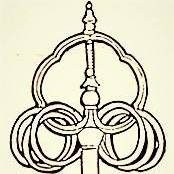
See Chinese version HERE
吾般涅槃后,
汝等当恭敬,
波罗提木叉,
即是汝大师。–《佛所行赞》
(马鸣菩萨著)After my Parinirvāṇa [i.e. of Śākyamuni Buddha],
you and others should have reverent respect,
for the Prātimokṣa [i.e. list of precepts
governing monastic conduct taught],
[as it] is your great teacher.– Buddhacarita; Praise Of Acts Of The Buddha
(Aśvaghoṣa Bodhisattva)
In one of his final teachings… ‘Then, the Tathāgata [Śākyamuni Buddha] told Ānanda [and all in the assembly], “You should not see my entering of Parinirvāṇa to simply be called the right Dharma, hereat, being forever ended. Why is this so? I, in the past, for all Bhikṣus [and Bhikṣunis], established precepts for the Prātimokṣa. And with more said, on all kinds of wonderful Dharma [teachings], these [together] are then you and others’ great teacher, [just] like when I am in this world, [they are] without [any] difference.”‘ (Mahāparinirvāṇa Sūtra: Śākyamuni Buddha) ‘尔时如来告阿难言,”汝勿见我入般涅槃便谓正法于此永绝。何以故?我昔为诸比丘,制戒波罗提木叉。及余所说种种妙法,此即便是汝等大师,如我在世,无有异也。”‘《大般涅槃经:释迦牟尼佛》
Being a perfect teacher, the Buddha already ensured that all crucial teachings had been taught, which means what left to be done by us is to put them into diligent practice, so as to progress towards Buddhahood. This quote reminds us that the existence of the right Dharma in our world truly ends when there is disinterest or wilful ignoring of the moral precepts. Although addressing monastics, this applies to lay precepts too, and how both monastic and lay communities should relate to each other. To neglect the Dharma on discipline would be direct betrayal of the Buddha!
In the Buddhist community, between teachers and students, be they monastic or lay, the relevant precepts and other related teachings taught by the Buddha should always be referred to for reflection when there are matters of contention, to decide if actions and principles accord with the Dharma or not. On all troubling issues major and minor, discussion should be thorough.
Even if some claim that how some matters are handled was handed down by a teacher, or even that teacher’s teacher, which makes it ‘allowable’, the precepts still should be the gauge of their actual ‘allowability’. If not, anything goes, and all precepts might as well be renounced! Good teachers will abide by the precepts, and urge their students to do likewise, never excusing anyone.
Some feel that they should accord with their teachers’ teachings, even if it means breaking some precepts. However, we should all have the precepts as our default teacher (以戒为师), which is what the Buddha clearly taught. This means the authority of the precepts as our teacher precedes the authority of any other teachers, all the more so if they do not behave and teach accordingly.
If a teacher fails even to lay and stand firmly upon the foundation stone of morality personally, there is no way to urge students to do the same. If abiding by the precepts, yet labelled by the teacher’s supporters as traitors, or even influenced by demons, it is more likely the other way round – as Māra and his minions are those who urge overlooking and betraying of the precepts.
To silent criticism, often used by cults is followers’ fear of creating grave negative karma, from ‘slander’ of the ‘teacher’. However, reasonable questioning is not slander at all, while it is slander to accuse questioners of slander! If tricked to be students of problematic ‘teachers’, there is of course no need to blindly obey these liars for life. There should be swift departure to warn others!
No guru is so special that he or she is above the Dharma (which includes the precepts) taught by the Buddha. Even the Buddha abides by the precepts he taught! As it was unequivocally taught by the Buddha that the precepts represent his presence after his Parinirvāṇa, all who ignore them do not truly take refuge in the Buddha, Dharma and Saṅgha, (all of whom live by the precepts).
Remembering Śākyamuni Buddha as our fundamental teacher, as the original and perfect source of all Dharma teachings, if there are contradictions between any teacher’s conduct and the precepts, the precepts are always judge and jury. If even the Buddha’s basic teachings on morality are not valued by a teacher, how valuable can such a teacher be?
Precepts neglected means conduct unaccounted for, that can involve unaccounted money matters, secret sex scandals and latent power struggles. All corruption begins relatively small, with lack of receipts and reports on takings and expenditures. Being a religion for truth, it is alright to ask for fair transparency, and to report to authorities if refused, to prevent more from being tricked.
We need to rely on good-knowing friends (善知识) as teachers, but prior to that is ensuring that teachers shortlisted have the qualities worthy of our confidence and reverence. Guru devotion that ‘sees a teacher to be like a Buddha’ (视师如佛) only applies after much mindful observing and questioning, to see if he or she behaves and teaches purely. For blind followers, any ‘guru’ will do!
Some ‘gurus’ are privately ‘recognised’ as ‘tülkus’ (reborn masters) too, for power and control of organisations (or even jumpstarting them), without getting proper relevant lineages’ senior masters’ endorsements. Always beware of false ‘spiritual credentials’ that arise too casually and suspiciously. Seek further opinions too, through other respected teachers, to clarify and mediate.
However, truly problematic teachers’ organisations will tend to question the questions, offer smokebomb non-replies to obfuscate the issues, or simply brush aside all questions. Yet, haunting issues will haunt on, awaiting to be exorcised with clear explanations. The more the years go by, the more obvious it becomes that timebombs of ugly truths are hidden, awaiting to explode.
If even the Buddha was open to being questioned, what more should non-Buddhas be? Only fake ‘gurus’ evade questions with threats that negative karma will be created when doubts about their integrity are raised. If even the Buddha clarified misrepresentation of his teachings and character personally, how can we trust his so-called ‘spokespersons’, if they simply rubbish sincere enquiries?
Upon closer look, there are already adequate qualified answers in the Buddha’s teachings, that address ‘contentious’ issues. Yet, even when expressed by other well-meaning teachers, problematic teachers tend to ask their followers to simply trust them fully, and to not even look into others’ right views. This essentially is a most unreasonable request to ignore the precious Dharma!
Buddhists must be absolutely clear, that just as the Buddha realised the Dharma and continued to take refuge in it even after attaining Buddhahood, our first, ongoing and final focus of loyalty is the right Dharma itself. Any ‘guru’ devotion then, that asks to forsake devotion to the Dharma is surely not a practice that leads to Buddhahood. Such ‘gurus’ automatically disqualify their own status!
True ‘guru’ devotion is not loyalty with blind faith. It also means having compassion for ‘gurus’ gone astray, by addressing their faults to awaken them – for their good and those misguided by them. No one should become so emotionally attached that they lose their reason, to rationalise for the non-Dharma at all costs, which will harm more, while creating negative karma bound for hell!
我成佛来,
所说经戒,
即是汝护,
是汝所持。–《游行经》
(释迦牟尼佛)I, [having] accomplished Buddhahood since,
[of] spoken Sūtras [with Dharma teachings] and precepts,
[they] are [for] you to protect [and ‘for your protection’],
[and] are what you should uphold [for practice].– Mahāparinibbāna Sutta; Sūtra On Travels
(Śākyamuni Buddha)
